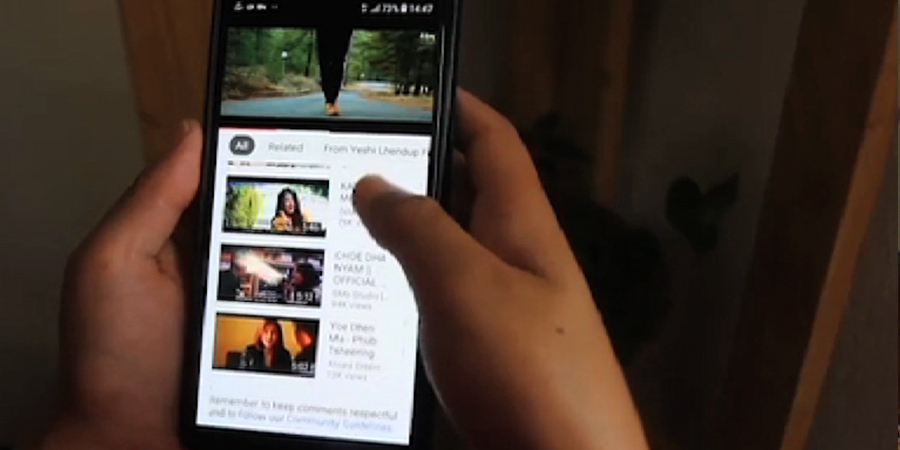
Picture Courtesy: DoIP
The only two private owned OTT in the country are faring well in the country. OTT is an over-the-top media service offered directly to viewers via the internet. People including those living abroad are able to watch locally produced movies and television series online, thanks to the two OTT platforms called Samuh and Songyala. But against this well-received support, increasing copyright infringement is hampering their business. A lot of people are circulating their copyrighted content on various social media platforms without their knowledge and consent, and this is illegal.
During a recent copyright awareness workshop in Thimphu, Samuh MediaTech, an OTT platform, shared that the company recorded more than 10 copyright infringement cases since its launch in July this year. About five Samuh copyrighted films were found uploaded by the infringers on their personal Facebook account and YouTube channel without their consent.
According to Tandin Tshering, the Sales and Promotion Head of Samuh MediaTech, the company has already registered around 14 copyright infringement cases within a short span. “And these are cases known to us. But there could be many,” he said. “From the 14, we were able to track seven of them with the help of police and we are planning to take them to court.” He says they are doing this in order to make people understand the legal implications of copyright infringement.
Nyema Zam, the Chief Executive Officer of Samuh said there is a group on Telegram, an online messaging app consisting of over 5000 members from all walks of lives including people who are aware of the copyright act. She said the group members share and circulate copyrighted contents such as films and music videos.
Similarly, Songyala, another OTT platform, said while the company hasn’t recorded any case so far, emerging copyright violation issues in the OTT platform are concerning. They say there is a need for advocacy on copyright rights, infringement issues, and their legal implications.
The Copyright Act of Bhutan 2001 gives protection to literary works, films, musical compositions, and artistic works such as paintings, drawings, photographs, architecture, and sculpture.
Meanwhile, to make people aware of infringement implications, the department of intellectual property under the economic affairs ministry will soon come up with a standard operating procedure.
“One thing which emerged quite clearly from the meeting was the need to increase coordination and also the need to come with the standard operating procedure or a MoU,” said the department’s Director-General Kinley T. Wangchuk. “After the workshop, we are going to take this very seriously and come with a workable standard operating procedure so that it will smoothen the coordination between the different actors.”
Sharing of copyrighted content is illegal as per the Copyright Act of Bhutan 2001. It states that the owner of any right protected under this act whose right has been infringed shall be entitled to the payment, by the infringer, of damages for the prejudice suffered by him or her or by it as a consequences of the act of the infringement, as well as the payment of his or its expenses caused by the infringement, including legal costs.
Sonam Pem
Edited by Yeshi Gyaltshen



